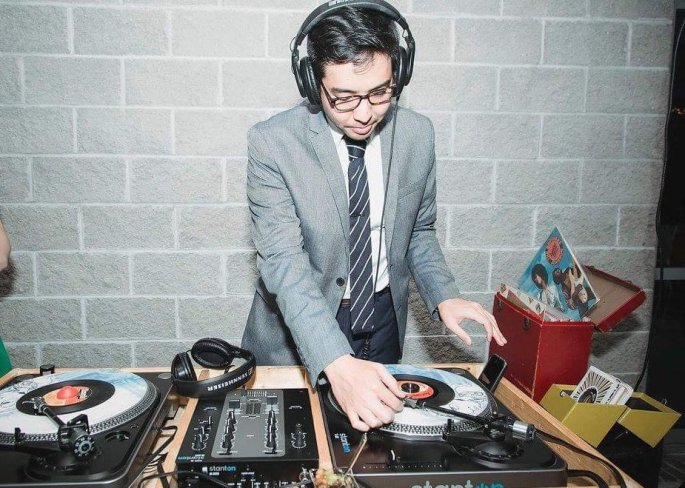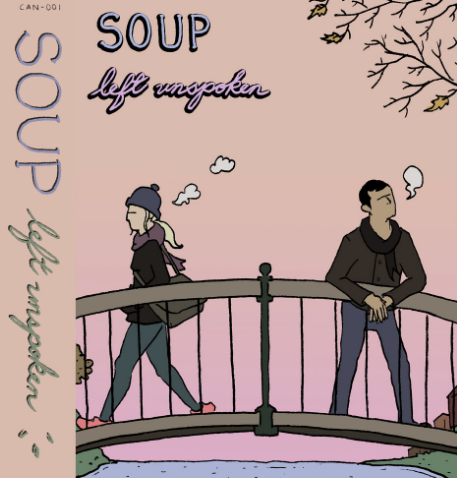
by Jerome Spencer
While hip-hop has always given shine and recognition to the producer, it’s only in recent years that instrumental hip-hop has risen to prominence. Certainly, my go-to when I’m trying to chill out and find my inner peace, I tend to go for the sample-based tranquil stuff I can nod out to and get lost in my thoughts; Sunday morning vibes all week.
Norfolk’s own Richard Soup has seemingly come out of nowhere to become the Sunday morning favorite of hip-hop heads everywhere. The son of Vietnamese refugees, Soup didn’t have the same musical upbringing that many of us take for granted.
“Up until I was like 6 or 7, I wasn’t exposed to a lot of English-speaking music,” he tells me via phone, “most of the music that I heard was either my parents singing old Vietnamese folk songs or they used to get these really cheesy variety show cassette tapes from Vietnam. Pretty much Vietnam was two decades behind, so whatever was going on musically in the late-80s/early-90s hadn’t caught on yet so they were featuring artists like Boney M. Disco was huge in Vietnam in the early-90s so my first exposure to English-speaking music was disco, which I still really love.” Soup’s musical palette soon branched out to whatever he could find at the thrift store; “The Carpenters, The Beatles…” (the guy talks real highly of The Carpenters).
It’s important to mention that Soup was taking music very seriously in high school. He played viola in the orchestra and was taking courses in music theory and composition, but he also started getting really into hip hop. “De La Soul, A Tribe Called Quest and Digable Planets was my favorite stuff.” And while a lot of his friends were rapping and beat boxing, Soup had no interest in rapping and couldn’t beat box (who can beat box, really?) so he took to producing, naturally.
“I started using the software that we had in our music theory classes to write beats using sheet music and assigning instruments to make beats that way.” Let’s pause here because how cool does that sound?
In college, Soup was a music minor and got to study under a visiting professor who was really into electronic composition and specialized in arranging field recordings into more traditional sounding compositions. This is also when Soup got his first MPC and started sampling. Soup can talk for hours about all of the great experimental things he learned and did with sound in college, but one of his beats tells the same story. His music is purposefully repetitive so that you can zone out and just catch the vibe, deceptively simple boom bap that comes from a deep understanding of what makes a song work.
Soup took an inadvertent break from music to go to law school and practice environmental litigation in New York, but started making music again when he moved back to Norfolk about three years ago. He met other supportive hip hop producers, started doing “For the Record,” a producer event at The Groove that grew into family-friendly party/cypher, and has recently collaborated with Better Beat Bureau’s Ologist and Thank You Gift Shop to organize Thanks For Listening, a “producer open-mic” at Selden Market.
But let’s not let his community contribution distract us from his tapes. His tapes are incredible. On the surface, 2016’s “Left Unspoken” and this year’s “Together” can simply come off as stellar beat tapes; just some head-nod beats with deep pockets to freestyle along with. And, honestly, that would be enough, but there’s so much more.
While the obvious influences are there (Pete Rock, Dilla, No I.D.), there’s a certain brightness and innovation that transcends a standard hip-hop instrumental album. But it’s not the kind of thing one can put into words. It’s kind of like how Picasso understood painting so well that he could no longer adhere to the rules and produce a traditional painting.
Soup paints soundscapes the way Pablo attacked a canvas, with ease and vibrant imagination. Perfect for cruising in your Jeep or watching the rain with a cup of tea, Soup has filled the void that was left when trip hop went mainstream and hip-hop found that sizzle pad on the drum machine. Whether you knew it or not, it’s something we all needed.

